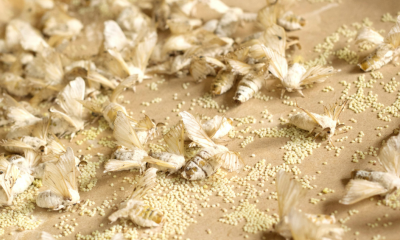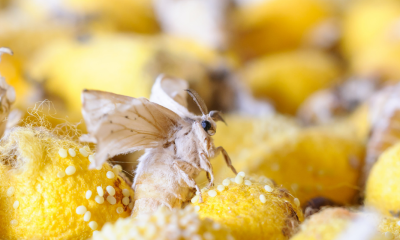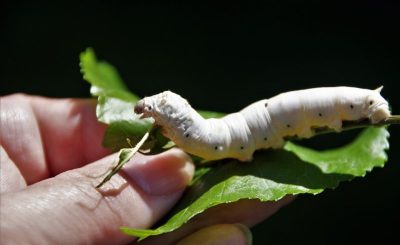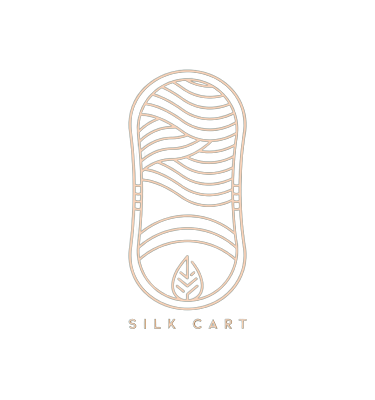Our History
We are not sericulture scientists or technologists by profession. However, silk technology runs in my blood, thanks to the expertise and experience passed down from my grandfather and father, who have been involved in silkworm egg production and rearing since their childhood. Our grandfather, the late B. Muninanjappa, was awarded a Gold Medal by the Maharaja of Mysore State in 1937 for producing the best crossbreed cocoons.
In 1942, the sericulture department encouraged private individuals to take up crossbreed silkworm egg production, paving the way for the genesis of VSSPC. From 1942 to 1988, our grandfather gained popularity by supplying disease-free crossbreed eggs to sericulturists in surrounding districts. Over these 46 years, meticulous care was taken to avoid supplying “Pebrine” infected batches, maintaining high quality. This dedication became a hallmark of VSSPC. Our grandfather had a dream and desire for his sons to continue the profession he meticulously nurtured. To fulfill this, he ensured they underwent departmental training for six months.
Our father, who decided to follow in the footsteps of my grandfather, transferred his grainage license to his own name in 1988 and relocated it to Bangalore with ambitious plans to popularize his produce across the state. By this time, our father had mastered the technique of microscopic examination to ensure the supply of Pebrine-free silkworm eggs to farmers. The journey was not easy and demanded a lot of effort, often making him consider giving up silkworm egg production. However, his determination, encouragement from departmental staff, and support from friends motivated him to persevere. By 1994-95, he successfully emerged as the highest quantity producer of silkworm eggs in the private sector, not only in the state but also in the entire country. His popularity was also due to the consistently high quality of his produce, which he always ensured.
Realizing our father’s potential, he was sent to China and Japan in 1994 for advanced training and studies in the silk industry. He effectively utilized the knowledge gained in these advanced countries and applied it practically in his grainage to enhance the quality of silkworm eggs produced by him. At this stage, he felt the need to create a platform for all private silkworm egg producers and played a key role in organizing the Karnataka State LSPs Trust, where he was unanimously selected as its Founder President. He continued to serve as its President for more than a quarter century, motivating many private graineurs to produce quality silkworm eggs and conducting numerous seminars and workshops. Thus, he remained actively engaged in sericulture activities.
Our father’s thirst for sericulture knowledge led him to visit China four times and other countries including Thailand, Singapore, Malaysia, Indonesia, Bhutan, Israel, Egypt, and America. He utilized the experiences gathered during these visits to establish a strong VSSPC in Bangalore.
In addition to silkworm egg production activities, he also set a precedent by honoring achievers in silkworm rearing from the private sector. In 1994-95, he honored more than 200 sericulturists with gold and silver medals in a unique function attended by many State and Central government authorities. This event remains a memorable milestone in the history of VSSPC.



Besides this, our father was also the first to introduce the following technologies:
- Cocoon-level sorting of males and females based on weight.
- Male moth preservation chamber maintained at 7°C.
- Meticulous microscopic examination of pupae and moths lot-wise to ensure the supply of only disease-free silkworm eggs.
- Identification of ‘Pebrine’ lots, reporting them to departmental staff, and scientifically rejecting them. This helped seed area authorities effectively control Pebrine. He reported 238 instances of Pebrine between 1991 and 2015, despite suffering heavy monetary losses, which did not deter his commitment to quality.
- He developed his own database and tracked the performance of commercial crops from parent seed cocoons. This enabled stringent selection of parent seed cocoons from selected seed rearers.
- During those days, many farmers visited VSSPC to purchase eggs, and he utilized this opportunity to conduct classes led by progressive farmers, scientists, and departmental staff.
- He was the first to start bivoltine hybrid production in 2016, creating all necessary infrastructural facilities.
For his contributions to the silkworm seed sector, he was awarded numerous state-level and national awards. Among them, the most notable is the ‘Seth Baldeodas Shah Award’ presented by the Central Silk Board. Additionally, he served as a member of several important committees constituted by both state and central governments:
- Member of the Central Silkworm Seed Committee (CSSC), constituted by the Government of India for implementing the Central Seed Act 2006.
- Member of the Kunigal Seed Area Improvement Committee.
- Member of the Research Advisory Committee of NSSO and SSTL.
In addition to these roles and his vision of creating a national forum for all stakeholders, he established the ‘Silk Association of India (SAI)’ and served as its founder Secretary. SAI is led by many distinguished individuals, with V. Balasubramanian, a legendary sericulture bureaucrat, serving as its President.
It is our inherent desire to utilize our aptitude for sericulture and our academic achievements to modernize sericulture commodity transactions through a tech-enabled marketplace. This marketplace will electronically link all stakeholders and promptly fulfill their requirements.

Downloads

